- Home
- Fredric Brown
Mostly Murder
Mostly Murder Read online
MOSTLY MURDER
Fredric Brown
Copyright © 1953
Contents
The Laughing Butcher
The Four Blind Men
The Night the World Ended
The Motive Goes Round and Round
Cry Silence
The Nose of Don Aristide
A Voice Behind Him
Miss Darkness
I’ll Cut Your Throat Again, Kathleen
Town Wanted
The Greatest Poem Ever Written
Little Apple Hard to Peel
This Way Out
A Little White Lye
The Dangerous People
Cain
The Death of Riley
Don’t Look Behind You
The Laughing Butcher
YESTERDAY MUST HAVE been a dull day for news, because the Chicago Sun gave three inches to the funeral of a dwarf downstate, in Corbyville.
“Listen to this, Bill,” Kathy said, and Wally—(that’s my only in-law, Kathy’s brother)—and I looked up from our game of cribbage.
“Yeah?” I said. Kathy read it to us.
Then she said, “Bill, wasn’t that—” She let it trail off.
I looked at her warningly, because of her brother being there with us, and I said, “The dwarf that beat you at a game of chess five years ago? Yeah, that was the one.”
Wally put down his last card, said, “Thirty-one for two,” and pegged it. I scored my hand and he scored his and the crib, and it put him out and ended the game.
“Five years ago,” he said. “And yesterday was your anniversary. That’s put it on your honeymoon, if it was exactly five years ago, I mean. She play chess with dwarfs on your honeymoon?”
“One dwarf,” I told him. “One game. In Corbyville. And she got beaten.”
“Served her right,” Wally said. “Look, Bill—wasn’t it about that time, five years ago, they lynched a guy in Corbyville? The case they called the ‘The Corbyville Horror’?”
“A few weeks after that,” I said.
“The guy was a butcher, and a black magician, or something. Or they thought he was. Killed somebody by magic, or…What was it about, anyway?”
I was looking at the window, and the window was a black, blank square of night, and I wanted to shiver, but with Wally watching me that way, I couldn’t. I got up and walked over to the window instead, so I could look down on the lights and traffic of Division Street instead of at the black night above it.
“It was the butcher they lynched,” I said. I turned around from the window. “We saw him, too.”
Wally picked up his glass of beer and took a sip of it.
“Some of it’s coming back to me,” he said. “Corbyville’s that circus town, isn’t it? Town where a lot of ex-circus people live?”
I nodded.
“And this Corbyville Horror business. Wasn’t a guy found out in the middle of a field of snow, dead, with two sets of footprints leading up to his body and none leading away from it?”
“That’s right,” I said.
“And one set of footprints was his own and the other set just led to the body and vanished as though the guy had flown?”
“Yes,” I said.
“I remember now. And the town lynched this butcher-magician because he had a down on the guy who was killed, and—”
“Something like that.”
“They never did find out what really happened?” Wally asked.
“No.”
He took another sip of beer and shook his head.
“I remember now that it puzzled me. How could a set of tracks go halfway across a field of snow and then stop, and not either come back or go on?”
“One set’s easy to explain,” I said. “I mean those of the guy they found dead out there in the field.”
“Sure, him. But what about the one who chased him? He did chase him, didn’t he? I mean, if I remember rightly, his footprints were on top of the dead man’s in the snow.”
“That’s right,” I said. “I saw those footprints myself. Of course by the time I saw them there were a lot of other prints around and they’d taken the body away, but I talked to the men who found the body, and they were sure of their description of those prints, and of the fact that there weren’t any other ones around, within a hundred yards.”
“Didn’t somebody suggest ropes?”
“No trees or telephone poles anywhere near. Nope.”
Kathy went and got us some more beer. I asked Wally if he wanted another game of cribbage. “No,” he said. “The story.”
I poured his glass full and then mine.
“What do you want to know, Wally?” I asked.
“What killed him?”
“Heart failure,” I said.
“But—what was chasing him?”
“Nothing was chasing him,” I said slowly. “Nothing at all. He wasn’t running away from anybody or anything. It was more horrible than that.”
I went over and sat down in the big armchair. Kathy came over and curled up on my lap like a contented kitten. Over her shoulder I could see that black square of night that was the open window.
“It was much more horrible than that, Wally,” I repeated slowly. “He wasn’t running away from something. He was running toward something. Something out in the middle of that field.”
Wally laughed uneasily. “Bill,” he said, “you don’t talk like a Chicago copper. You talk like a fey Irishman. What was out in that field?”
“Death,” I told him.
That held him for minute. Then he asked, “What about the one-way tracks, the ones that led to the body and not away from it?”
*
It was warm and pleasant up there on top of the hill, I remember. I stopped the car at the side of the muddy road, put my arm around Kathy and kissed her, with the soundness that a second-day-of-honeymoon kiss deserves. We had been married the morning before, in Chicago, and were driving south. I had arranged a month off and we figured to get to New Orleans and back, driving leisurely, and stopping off wherever we wished. We had spent the first night of our honeymoon in Decatur, a town I’ll never forget.
I won’t forget Corbyville, either, although not for the same reason. But of course I didn’t know that then. I pointed to the view through the windshield and down the hill into the valley, bright green and muddy brown from the recent rains. And with a little village at the bottom of it—three score or so of houses huddled together like frightened sheep.
“Ain’t it purty?” I said.
“Beautiful,” Kathy said. “The valley, I mean. Is that Corbyville? Where are the elephants? Didn’t I read they used elephants for the plowing outside Corbyville?”
I laughed at her. “One elephant, and it died years ago. I guess there are a lot of the circus people left there, though. Maybe we’ll see some of them when we drive through.”
“I forget the story, Bill,” Kathy said. “Why is it so many circus people live there? Some circus owner—”
“Old John Corby,” I said. “He owned about the third biggest circus in the country and made a fortune from it. That was the town he came from—it had some other name then—and he put all his profits into the land there, got to own nearly the whole town and valley.
“And when he died, his will left houses and stores and farms to people in his circus, on the condition that they live there. A lot of ‘em wouldn’t, of course; weren’t ready to settle down, and went with some other circus instead. But a lot of ‘em did take what was left them and live there. Out of a population of a thousand or so, over a hundred, I think are ex-circus people…. Did I ever tell you I love you, Kathy?”
“I seem to remem…Bill, not here! You—”
So after a minute I slid the car in
gear and started down the slippery, winding road into the valley. We were off the main highway, coming in on a side road that wasn’t used much, and it was pretty bad. The mud was inches deep in the ruts. It wasn’t too bad until we were just a half-mile outside the village, and then suddenly the wheels were sliding and the back end of the car, despite my efforts with the wheel, slewed around and went off the road. I tried to start, and the back wheels spun in mud that was like soup.
I said appropriate words, suitably modified to fit Kathy’s presence, and got out of the car, then looked around. There was a little three-room frame farmhouse only a few dozen paces away, and a stocky, blond man of about thirty was already walking from the house toward the car. He grinned at me.
“Nice roads we got here,” he said. “You in very deep?”
“Not too bad,” I told him. “If you can give me a hand, maybe two of us—”
“Wish I could,” he said. “But anything heavy’s against the rules. I’ve got a bum ticker. The doc won’t let me pick up anything heavier than a potato, and I got to do that slow.” He looked up and down the road. “We might get you out with some gunny sacks or boards, but it’d hardly be worth the trouble. Pete Hobbs is about due by here. He’s the mailman.”
“Drive a truck?”
The blond man laughed. “Sure, but he won’t need it. Pete used to be a strong man with Corby. He’s getting old, but he can pick up the back end of your car with one hand. You and the missus want to drop in the house till Pete gets here?”
Kathy had been listening, and she must have liked the man because she said sure, we’d be glad to.
So we went in, and it was half an hour before the mailman came along and we got to know the Wilsons fairly well, for half an hour. That was the blond man’s name, Len Wilson. His wife, Dorothy, was a stunner. Almost as pretty as Kathy.
No, Len Wilson told us, he hadn’t been with any circus. He had been born right here on this small farm, and Dorothy had been born in Corbyville. They had been married four years, and you could see that they were still in love. I noticed how considerate they were of each other; how, when he started up to get an ash tray for me, Dorothy spoke almost sharply to him to make him sit down again. The sort of sharpness one might use on a child.
I remember wondering how, since Len couldn’t exert himself physically, he managed to run a farm, even a small one. Maybe he knew I’d be wondering that. Anyway, he told me the answer.
“I can work all right,” he told me, “as long as it isn’t heavy, and I keep at a steady, dogged pace. I can lift a thousand pounds—about ten pounds at a time. I can walk a hundred miles, if I walk slowly and rest once in a while. And I can run a farm, a little one like this, the same way. Not that I get rich doing it.” He grinned a little.
A honking out front brought us to our feet, and Dorothy Wilson said:
“That’s Pete. I’ll run ahead and be sure to catch him.”
The rest of us followed more slowly, Kathy and I matching our pace to Len’s. The ex-strong-man got out of his mail truck and he and I easily lifted the car’s back end around to where the wheels would find traction.
As I got under the wheel, Len waved.
“Might see you in town, if you’re stopping there,” he said. “I’m riding in with Pete.”
Anyway, that was how we met Len Wilson. We saw him only once more, in Corbyville, a little later.
I was going to drive on through, I remember, but Kathy wanted to stop and eat. I parked the car in front of a clean-looking hamburger joint and we went in. That was where we met the dwarf.
I remember thinking, when we first went in and sat down at the counter, that there was something strange and out of proportion about the five-foot-tall little man who nodded to us from behind the counter and took our orders. But I didn’t realize what it was until he walked back to the grill to put on the hamburgers we ordered. He wasn’t five feet tall at all; he was about three feet. The area back of the counter was built up, about two feet higher than the floor in the rest of the room.
He saw me lean over the counter and look down, and grinned at me.
“My chin’d just about come to the level of the counter without that arrangement,” he said.
“You ought to get a patent on it,” Kathy said. “Say, isn’t that a chess board down there at the end of the counter?”
He nodded. “I was working out a problem. You play?”
That was better than the smell of the hamburgers to Kathy. Few women like chess, but she’s one of the few, even if she doesn’t look like it. To look at Kathy you’d think gin rummy would be her top intellectual entertainment, but you’d be fooled. She’s got more brains and more education than I. Got a master’s degree and would probably be teaching if she hadn’t decided to marry me instead. Which, I’ll admit, was a big waste of brains.
Kathy told him she played and how about a quick game? And she wasn’t kidding on the quick part; she really does move fairly fast, and the dwarf—I noticed with relief—kept up with the pace she set. I know enough about chess, due to Kathy, to follow the moves, and when a game goes fairly quick, I can stay interested watching it.
Kathy had the men set up by the time he brought our hamburgers and coffee, and I watched until midgame while I ate. Then I strolled front to the doorway and stood leaning against the jamb, looking out across the street.
Directly across from me, in the doorway of the butcher shop, a butcher in a white apron was doing the same thing. My gaze passed him over lightly the first time, then went back to him and got stuck there. At first, I didn’t even know why.
Then a child—a girl of about six or seven—came skipping along the street, noticed him when she was a dozen paces away, and stopped skipping. She circled widely, almost to the outer curb, to keep as much distance as possible between herself and the butcher. He didn’t seem to notice her at all, and once she was safely behind his back, she started skipping again.
Definitely, I realized, she had been afraid of him. It could have been nothing, of course; a child who’d been scolded for filching a wiener from the butcher shop, but—well, it didn’t seem like that.
It didn’t seem like that because what happened made me look at the butcher’s face. It was calm, impassive. If he had noticed the child, he had neither frowned nor smiled at the wide circle she had made. And the face itself was handsome, but…I shivered a little.
A Chicago cop gets used to seeing faces that aren’t nice to look at. He sees faces daily that might be Greek masks of hate or lust or avarice. He gets used to hopped-up torpedoes and crazy killers. He takes faces like that in his stride; they’re his business.
But this wasn’t that sort of face. It was an evil face, but subtly evil. The man’s features were straight and regular and his eyes were clear. The evil was behind the face, behind the eyes. I couldn’t even put my finger on how I knew it was there. It wasn’t something I could see; it was something I felt.
The part of my brain that’s trained to observe and remember was cataloguing the rest of him as well—I don’t know why. Height, five eleven; weight, one eighty; age, about forty; black hair, brown eyes, olive complexion; distinguishing features—an aura of evil.
I wondered what the looie in charge of my precinct would say if I turned in a report like that.
I strolled back into the restaurant and looked at the chess game, mildly wishing Kathy would be through so she could leave with me while the butcher was still standing there. I wondered what her reaction to him would be.
There were still a lot of pieces on the board, though. Kathy looked up at me.
“Having trouble,” she admitted. “This gentlemen really knows how to play chess. Why aren’t you smart like that, Bill?”
The dwarf grinned without looking up, and moved a pawn.
“She’s played this game before, too,” he said. “It’s even so far.”
“But not now,” Kathy said.
I looked at the pieces and saw what she meant. The dwarf had left one of his
knights unprotected. Kathy’s hand hovered over the board a moment, then her bishop swooped to conquer.
“Attababy,” I said to Kathy and patted her shoulder. “Take your time,” I told her. “It’s only our honeymoon.”
I strolled back to the doorway. The white-aproned butcher was still there.
Out of the doorway of the store next door to the butcher shop came Len Wilson. He walked, as before, slowly. He walked toward the butcher shop. I started to hail him, to ask him to come over and have a cup of coffee with me while Kathy and the dwarf finished their game. I had my mouth open to call to him, but I didn’t.
Len Wilson caught the butcher’s eye, and stopped. There was something so peculiar about his way of stopping, as though he had run into a brick wall, that I didn’t call. I watched, instead.
The butcher was smiling, but it wasn’t a nice smile. He said something, but I couldn’t hear it across the street, nor could I hear what Len answered. It was like watching a movie whose sound track had stopped working.
I saw the butcher reach into his pocket and take something out, hold it casually in his hand. It looked like a tiny doll, about two inches long. It could have been made of wax. He did something, I couldn’t see what, with the doll between his hands.
Then he said something again—several sentences—and laughed again. I could hear the laugh across the street, even though I hadn’t heard the words. It wasn’t loud, but it carried. And Len Wilson’s fists clenched, and he started forward—not slowly at all—for the butcher.
I started, too, at the same time. There wasn’t any mistaking the expression on Len’s face. His intention wasn’t any intention that a man with a bad ticker should have. He was going to take a poke at that butcher, a man bigger than he was and husky looking besides, and for a man in Len’s shape it was going to be just too bad unless that one poke did the work.

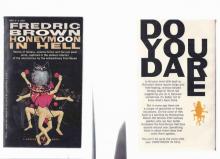 Hall of Mirrors
Hall of Mirrors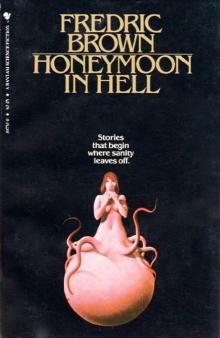 Honeymoon in Hell
Honeymoon in Hell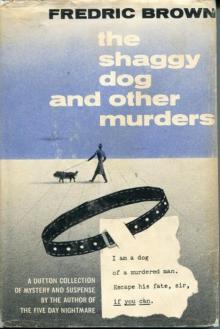 The Shaggy Dog and Other Murders
The Shaggy Dog and Other Murders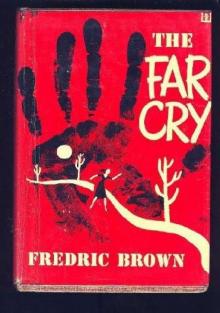 The Far Cry
The Far Cry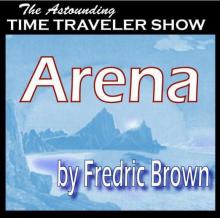 Arena
Arena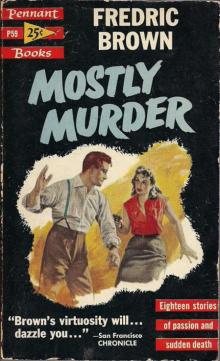 Mostly Murder
Mostly Murder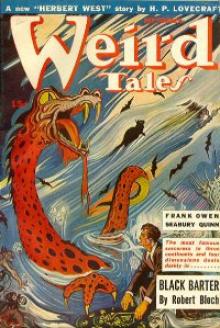 The Geezenstacks
The Geezenstacks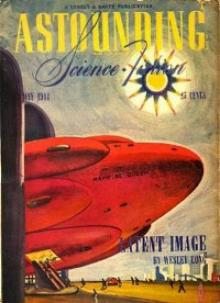 The Yehudi Principle
The Yehudi Principle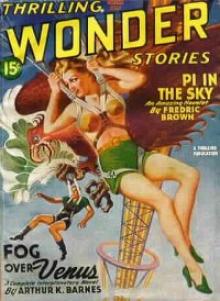 Pi in the Sky
Pi in the Sky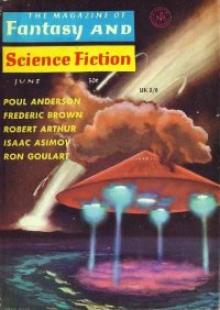 Eine Kleine Nachtmusik
Eine Kleine Nachtmusik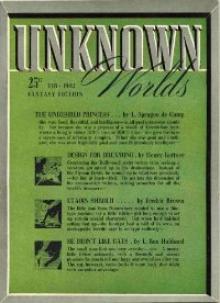 Etaoin Shrdlu
Etaoin Shrdlu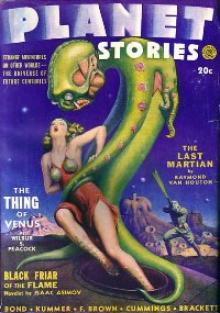 The Star Mouse
The Star Mouse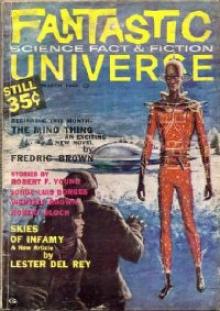 The Mind Thing
The Mind Thing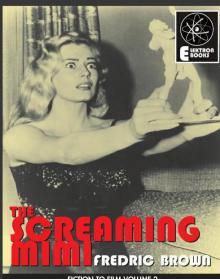 The Screaming Mimi
The Screaming Mimi The Fabulous Clipjoint
The Fabulous Clipjoint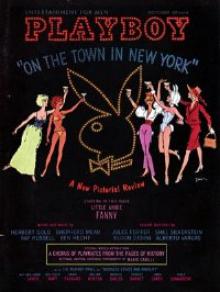 Puppet Show
Puppet Show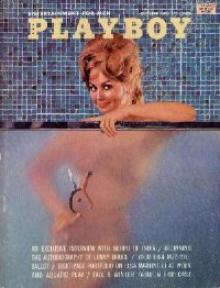 It Didn't Happen
It Didn't Happen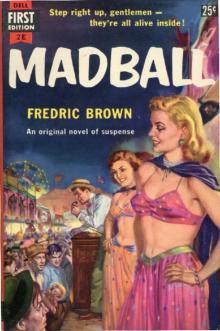 Madball
Madball Happy Ending
Happy Ending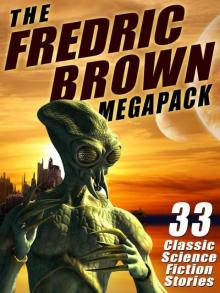 The Fredric Brown Megapack: 33 Classic Science Fiction Stories
The Fredric Brown Megapack: 33 Classic Science Fiction Stories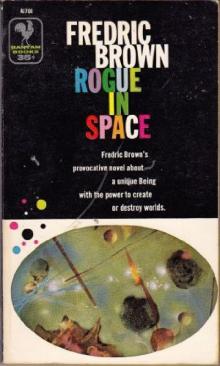 Rogue in Space
Rogue in Space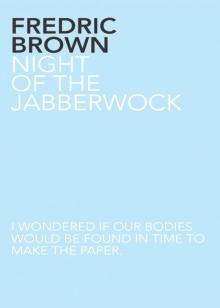 Night of the Jabberwock
Night of the Jabberwock The Dead Ringer
The Dead Ringer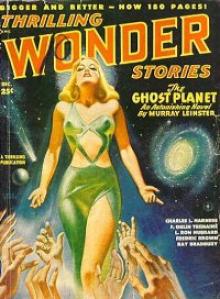 Knock
Knock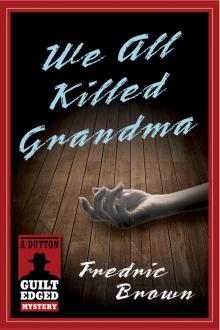 We All Killed Grandma
We All Killed Grandma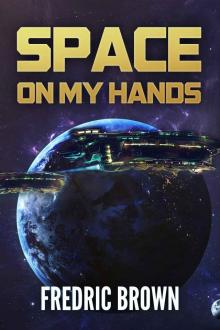 Space On My Hands
Space On My Hands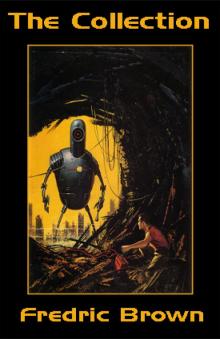 The Collection
The Collection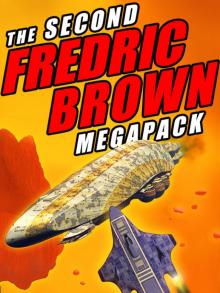 The Second Fredric Brown Megapack: 27 Classic Science Fiction Stories
The Second Fredric Brown Megapack: 27 Classic Science Fiction Stories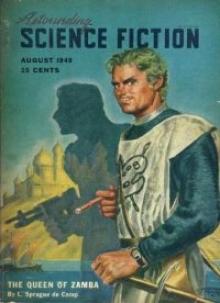 Letter to a Phoenix
Letter to a Phoenix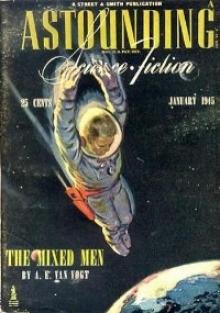 The Waveries
The Waveries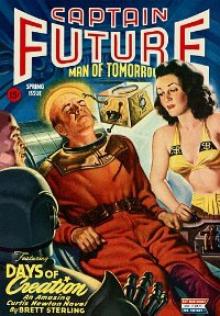 Nothing Sirius
Nothing Sirius The Deep End
The Deep End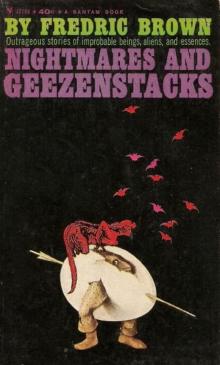 Nightmares & Geezenstacks
Nightmares & Geezenstacks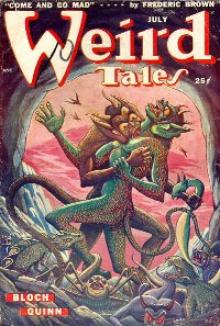 Come and Go Mad
Come and Go Mad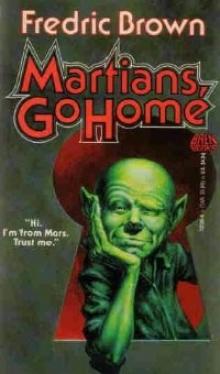 Martians, Go Home
Martians, Go Home